
IT is not uncommon to be chatting with clients or friends and be met with astonishment when I say that “we can fix horses with broken legs”. But it is quite true. There are, of course, some parts of the body and some types of breaks that cannot be repaired.
This is typically due to the horse’s weight – they are simply too big and too heavy for the metal implants used to repair the fracture to withstand.
For the sake of this article, fractures that are more proximal – that is to say, further up the horse, such as those of the tibia, femur, radius and humerus – cannot be repaired, and certainly not with the horse standing up.
By “standing”, I mean that the horse is sedated in the same way as it might be for clipping or for your dental work, and remains standing throughout the surgery. The area of the leg that is being operated on is then “blocked” using local anaesthetic to desensitise the region, so that screws and plates can be applied to repair and stabilise the fracture.
For us to do this, the fracture needs to be non displaced, or only minimally displaced, so that the horse can still bear weight on the leg – the leg still needs to be mechanically stable.
Most of the fractures suitable for standing repair are distal limb fractures – those below the carpus (knee) and tarsus (hock), and it is these to which this article will refer.
However, as we become more skilled as surgeons, then more fracture repairs in different parts of the body are being attempted in the standing and sedated patient.
For example, a recently published paper describes a series of elbow fractures that have been repaired in a standing sedated horse.
Often, the fact that the horse is standing – and therefore all the anatomy is in the “appropriate” location – makes accurate fracture repair easier.
This story is from the {{IssueName}} edition of {{MagazineName}}.
Start your 7-day Magzter GOLD free trial to access thousands of curated premium stories, and 9,000+ magazines and newspapers.
Already a subscriber ? Sign In
This story is from the {{IssueName}} edition of {{MagazineName}}.
Start your 7-day Magzter GOLD free trial to access thousands of curated premium stories, and 9,000+ magazines and newspapers.
Already a subscriber? Sign In
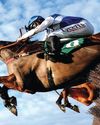
Gemirande provides 24-carat magic
Venetia Williams sparkles again in the December Gold Cup and jockey brothers dead-heat
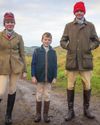
‘Happy hunting, everyone'
“The season for talks, dinners and parties has finally arrived for Tessa Waugh, whose distress about the snags of middle age fades away with some rousing festive spirits
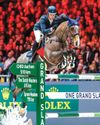
'Monaco deserved this victory
Seemingly destined always to play the bridesmaid’s role, Harrie Smolders’ great partner Monaco finally tops an incidentpacked Rolex grand prix

'It had to end sometime'
The closure of beloved Hampshire saddlery Calcutt Sons is a loss to the hunting and wider equestrian worlds, as Octavia Pollock reports
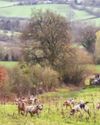
'You couldn't want for more
The Ludlow's peaceful country makes for a day in \"hunting paradise\"
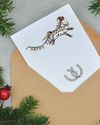
The greatest gift of all
Christmas is fast approaching and while we all like a bit of tinsel, the festive season is also a perfect time for giving to a horse charity. Niki Hinman finds out some of the options

Winter him well
A horse's winter routine can differ dramatically from his summer structure but what’s the knock-on effect? Ellie Hughes asks vets how to optimise routine management for the season
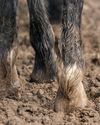
Neat feet
Excellent hoof care is a year-round concern but the winter months present their own problems. Richard Stephenson MRCVS explains the seasonal challenges afoot and how to stay one step ahead
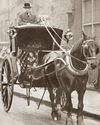
In bygone days
Modern vets have much scientific knowledge behind them, but what about their forebears? Kieran O’Brien MRCVS opens up the world of Victorian vets in London
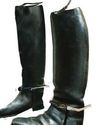
'When I joined the Pony Club it was just two boys and 48 girls'
Pepsi Kohler on being delightfully outnumbered by girls in the Pony Club, a leg-up from a royal and the H&H advert that changed his life